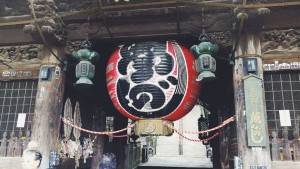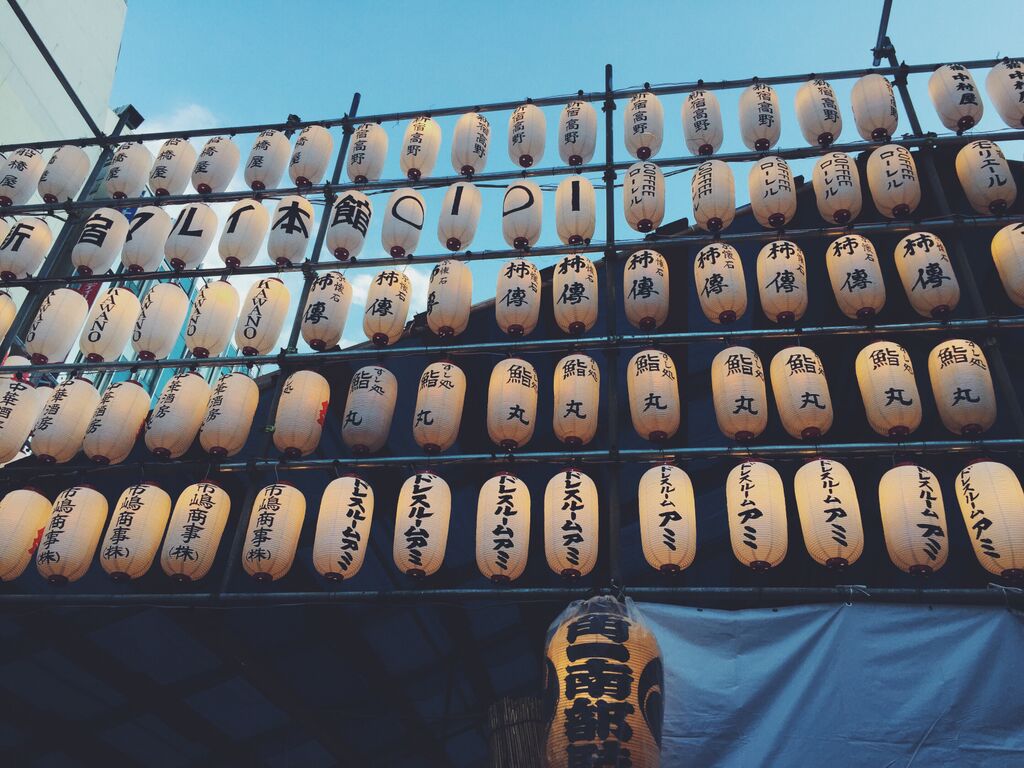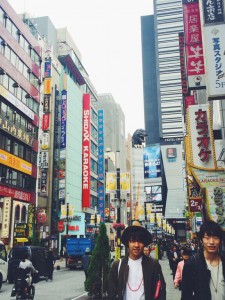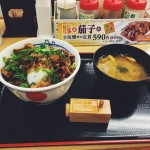Nikita is currently on exchange at Sophia University in Japan. Here are some of her impressions and experiences.
Pre-Departure:
It’s easy to get caught up in the excitement of planning your trip when going on exchange. The best thing you can do is to run with the enthusiasm and read up about the various procedures that you may encounter when you get to the country so as to provide yourself with a point of context from which to orientate yourself. Preparation is key when it comes to travelling to Japan and running searches on Google will suffice in terms of giving you a frame of reference. First off, book your flights as early as possible.
Flights from SA to Japan are expensive and you won’t be doing yourself any favours if you delay your bookings. Also, make sure to check baggage limitations. Some flights might seem cheaper, but will have extremely limited baggage allowances and will charge appalling rates for overweight. In this regard, check with your airline carrier if they offer a service where you can reserve extra weight for your flight. Some airlines even offer concessions for students travelling abroad if you provide documentation proving your enrolment at a tertiary institute, so make sure to ask. If you’re exchange university host is located in Tokyo, check to see which of the two international airports is closest to you’re residence before booking so as to minimise travel time.
Generally speaking, Haneda airport is closer to central Tokyo then the main airport in Narita. Also, flights to Haneda from South Africa are cheaper. With regards to the visa application process, quick and painless, pretty much sums it up. You just will have to fill in an application form online and bring in the requisite documentation, such as the “Certificate of Eligibility” which you will receive from your university, to the Japanese Consul office in Cape Town. 4 days later you’ll have your visa. If possible, apply for a multiple entry visa because flights from Japan to surrounding East Asian countries are really cheap, so it’s a great opportunity to explore the region!
Japanese regulations on bringing prescription drugs into the country are quite strict. Generally you cannot exceed a two month supply of any medication you bring with you, unless you apply for a special permit called a “Yakkan Shoumei” which you can do online. You must receive your permit before departing for Japan, so try to get it done as soon as possible. I would strongly recommend bringing your own supply of drugs that must be repeated on a monthly basis, such as birth control, as finding an equivalent in Japan will be extremely difficult and consultations with doctors are expensive.
Furthermore, make sure the medication you bring with you is legal in Japan as some properties in drugs such as certain cough syrups are banned in the country. If you are uncertain in this regard, send an email to a Japanese pharmaceutical inspector requesting information on the status of a particular product. All in all although the actual pre-departure process proved very straightforward and little was required of me, it is best to read ahead and familiarise yourself with the different application processes.
Experience at the Host University:
Upon arrival, you’ll quickly learn that Japan is a paper country in that it is insanely bureaucratic. As they will remain in the country for an extended period of time, it is mandatory that exchange students be issued a “Zairyu Card” (residence card), which they should carry on themselves always. The card itself you can receive immediately at the airport as you clear customs, however for it to be valid you will have to go to a Japanese municipal office to verify your address The procedures and documentation you will have to fill in when applying for your “Zairyu Card” and National Health Insurance (Sophia University requires all exchange students to a apply for the Japanese National Health Insurance in addition to their own travel insurance) are rendered impossible unless you speak Japanese or you’re accompanied by someone who is fluent or at the very least highly competent in the language. All the application forms are in Japanese and are required to be completed in Japanese. Expect no help from you’re host institution in this regard. So my advice, make friends… Fast. Something that has taken me by surprise is how little English the Japanese speak, even at official work places that must deal with foreigners on a daily basis. Which is why you should probably try to take a Japanese basic language course while enrolled. If credit allocations don’t allow you to do so, most districts have language schools where foreigners can learn Japanese at pretty cheap rates.

Sophia University is one of Japan’s leading private institutions, so expect superb facilities, lecture rooms and course options, should you choose to enrol in one of its programmes. That having being said, again the bureaucracy and administrative process is pretty appalling. Whereas at Stellenbosch, we’re quite spoilt in terms of been led by the hand through the registration process, the onus is entirely on you at Sophia. Students are granted a window period of one week to enrol in classes, after which the system shuts down and you can no longer register for other subjects. Bare in mind that Japanese visa requirements demands that students be enrolled for no less then 10 hours of tuition per week and if these conditions are not met you may be deported. So make sure you sign up for enough credits to cover the hours! Its best to enrol for extra subjects and drop them after if you are uncertain of which courses you want to take, as there is no way to change subjects once the system closes.
There are many English taught courses on offer at Sophia, many of which are offered in the Graduate Program in Global Studies. The GPGS, builds on Sophia’s traditional strengths in area studies to study globalization. Its curriculum offers the M.A. degrees in Global Studies, International Business and Development Studies, and Japanese Studies, as well as a PhD in Global Studies.
The culturally and nationally diverse student body and faculty form a lively intellectual community, and the central Tokyo location enhances teaching, research, and career opportunities.
Whilst studying at any Japanese institution, it is recommended that you try to join a club or circle. This way you will meet Japanese people who can help guide you through your respective institutions administrative process and just offer general advice and help. In a way, it will serve as a segue towards understanding the Japanese way of life, and will help you make the most of your time in the country. Japan is a land of contradictions where the über modern is juxtaposed against preserved and proud tradition. The best advice I can give will be to embrace its unique culture and open yourself up to new experiences.




